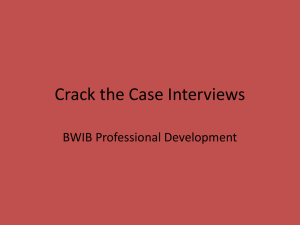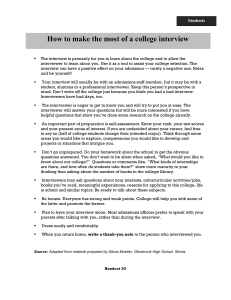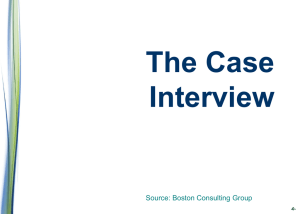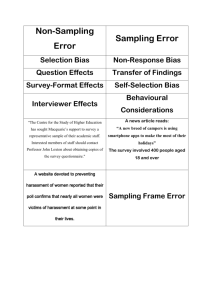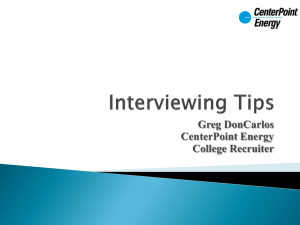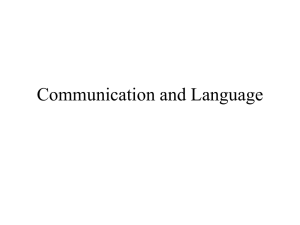Interview Tips
advertisement
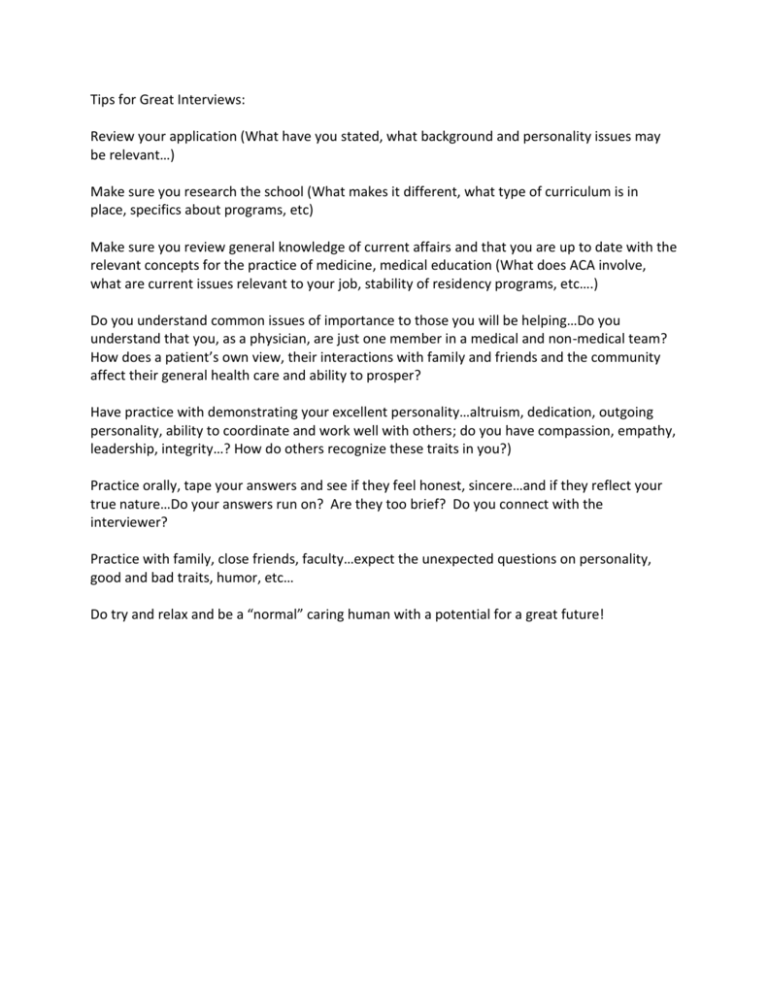
Tips for Great Interviews: Review your application (What have you stated, what background and personality issues may be relevant…) Make sure you research the school (What makes it different, what type of curriculum is in place, specifics about programs, etc) Make sure you review general knowledge of current affairs and that you are up to date with the relevant concepts for the practice of medicine, medical education (What does ACA involve, what are current issues relevant to your job, stability of residency programs, etc….) Do you understand common issues of importance to those you will be helping…Do you understand that you, as a physician, are just one member in a medical and non-medical team? How does a patient’s own view, their interactions with family and friends and the community affect their general health care and ability to prosper? Have practice with demonstrating your excellent personality…altruism, dedication, outgoing personality, ability to coordinate and work well with others; do you have compassion, empathy, leadership, integrity…? How do others recognize these traits in you?) Practice orally, tape your answers and see if they feel honest, sincere…and if they reflect your true nature…Do your answers run on? Are they too brief? Do you connect with the interviewer? Practice with family, close friends, faculty…expect the unexpected questions on personality, good and bad traits, humor, etc… Do try and relax and be a “normal” caring human with a potential for a great future! Top 10 Questions 10. What do you do if you suspect a colleague (another doc) is abusing drugs? 9. Rank intelligence, compassion, and integrity in the order of importance to you. 8. Why a physician? Why not nursing? 7. What part of your CV are you most proud of? 6. What made you go into medicine? 5. Tell me about yourself. (Don't give a complete life history. Summarize the key points in a chronological manner and sprinkle with few details in your more recent history.) 4. Why did you volunteer where you did? 3. Who are your heroes/role models and why? 2. Why did you apply to this medical school? And the No. 1 most commonly asked question during medical school interviews is ... 1. Why do you want to be a doctor? (Give several key points in summary form. Replace very general responses like, "I want to help people," with more specific intentions.) General/Personal Background 1. Can you tell me about yourself? 2. Tell me about where you came from and your family. Undergraduate/Pre-med Education 3. Tell me about a time of personal growth. 4. Tell me briefly about your academic achievements and what they have meant to you. 5. What are you most proud of and how has it influenced your current perspective? 6. What are your weaknesses? 7. What challenges have you overcome? 8. What is something that you are most proud of? 9. What student group on campus have you been a part of? Talk about the process of making a difference in this setting. Personality/Fit with Medicine 10. Can you name a time when you've ever felt a "call to duty." 11. If money was of no issue, and you could take a trip for one year, what would you do and why? 12.Was there a particular event in your life or moment that led you to pursue medicine? 13. What do you do in your spare time? 14. What do you think is the secret to being a great physician? 15. What do you think you'll like most about being a physician, and how will that suit you? 16. Who do you turn to for support and how do you handle your stress? 17. Who's a person of great influence for you? Skill/Goals for a Medical Student 18. Do you have any hesitations about entering medical school? What are they? 19. How are you a match for our medical school? 20. How do you deal with failure? And have you ever thought about coping with the death of your future patients? 21. How would you express to a physician that you are right and he/she is wrong? And how would you express that to a patient? 22. If you couldn't go to medical school what would you do? 23. Tell me about your research. 24. What attribute would you bring to a small group? 25. What have you done since you have finished writing your application to us? 26. What haven't we talked about that you want to share with me now? 27. What is one path of medicine that particularly excites you? 28. What would you bring to the student body here? 29. When you are retiring as a physician, what do you want your patients and staff to say about your career? 30. Why do you want to practice clinical medicine? Topics in Medicine 31. Do you have any perspective into the health care system dilemma in America? 32. STD test requested - how do handle the situation? 33. What do you think is the relationship between medicine and art? 34. What is a doctor's role in the controversy around stem cell research? 35. What most recent advances in medicine have occurred that you believe will have the greatest impact on patient care? This question was posed in every one of my interviews, and I suspect that many of you will also face this potentially silent killer: “So, can you tell me a little about yourself?” It appears to be so simple and apparently innocuous. But don’t be fooled! Beneath these few words, and plain veneer, lies a myriad of pitfalls. This is unfortunate, because this question affords an interviewee with one of the best opportunities to impress the interviewer and guide the session towards success. Let’s look at some of the pitfalls, how to avoid them, and how to use this question as a springboard to propel yourself into the status of a top-notch applicant. The Bad The most devious aspect of this question is the element of surprise – it often comes before the applicant even thinks the interview has begun. But be forewarned! As the lights come on, the show is underway. The “thumbnail biography” question may well be asked as you and the interviewer casually walk down the hallway toward the interview room. It seems like small talk – even an ice-breaker. While this may be true in part, you must not treat it as such. Be aware that there is significantly much more going on than informal chit-chat. Another difficulty for medical school interviewees is that this question lacks a right or wrong answer. This is a recurrent theme in medical school interviews, and many questions fit into this category. But as scientists, we live in a world dominated by the concept of correct and incorrect. The steps of mitosis are ordered, well established and fixed, and there’s not a lot of room for interpretation as to the correct order of anaphase and telophase. As such, applicants tend to struggle with questions that lack correct, fixed answers. The Ugly The one-two punch of informality and lack of a set or correct answer often leads the applicant to stumble. The common response by unprepared applicants is to ramble on at length. Not only is rambling inefficient, the outcome is deleterious. Time is a precious interview commodity, and you must not waste it. You only have a set amount of time in which to convince your interviewer that you would make a great physician, and equally importantly, that you are the best fit for their school. An overly long response many actually detract from the interviewer’s first impression of you and frustrate them. By droning on, you may actually limit the interviewer’s efforts to come to a good decision. But you must not squander the opportunity to convey the important items which distinguish you from other applicants, and demonstrate that you are an excellent match for the school. The problems above have an even greater impact because they prevent you from gaining yet another important advantage. As the next section will detail, this is quite simply the perfect opening to take control of the interview. The Good A biographical question offers an ideal opportunity to provide a selective overview of what you’d like to discuss during the interview. It is a perfect vehicle to help steer the interview into a positive direction, and to distinguish yourself from the masses of other applicants. The question is intentionally open-ended, designed to see where you choose to take it. With this in mind, be sure to lead the interviewer down a well prepared path that casts your application in the best possible light. Before we see what a good answer might look like, there is another important concept I’d like to convey. This is one of my favorite analogies, and like all good physician analogies, it involves food. I view the response to “Tell me about yourself” like a tray of hors d’oeuvres. I present the interviewer with a tasty selection of potential topics of discussion, and allow them to choose which they would like to talk about. In so doing, I accomplish several things: 1. I set the menu with items I’m best prepared to discuss. 2. I increase my ability to guide the interview, as the interviewer is more likely to ask questions about these subjects than about other, random subjects. 3. I reduce the stress for all parties by providing the topics for discussion, thereby, decreasing the likelihood of being blindsided by an unanticipated question. In order to take advantage of this opportunity, you will need to work off of the body of information you have developed in preparation for interviews. Basically, you will offer the information in outline form, allowing the interviewer to then choose which topics they would like you to elaborate on. While this column doesn’t comprehensively cover the detailed components of that information, it will provide some guidance. But keep in mind that the goal is to communicate your strengths, the life experiences that have contributed to these strengths, and the personal attributes you feel will demonstrate your ability to be both an outstanding medical student and future physician. Based on my personal experience, it is good to include a few other facts in order to help the interviewer relate to you as a person. For example, I would always state my age and where I was from, but a variety of other personalizing facts may be offered. Here is a list of possible categories to help structure your body of information: Age City of origin (could be your city of birth or current residence) Important work experiences (you can include research and volunteer activities) Passions Personal characteristics (kind, compassionate, energetic, etc.) Hobbies Here is what an applicant’s list of topics they would like to mention might look like: 23 years old. Live in Boston. Compassionate, diligent and determined. Passionate about cancer research; spent two years assisting in the investigation of a new medication. Aunt is a breast cancer survivor – spent a lot of time with her during the course of her illness and recovery. Enjoy traveling in Central America, sailing and other water sports. Let’s look at all of this in action. Here is a sample answer to the question utilizing the information above: “Can you tell me a little bit about yourself?” “Well, I’m 23 and currently living in Boston. I spend a good portion of my time working on a research project with my university investigating a new cancer treatment medicine. It’s easy for me to devote time to this project as my aunt is a breast cancer survivor, and I learned a lot as she went through this process. I’d like to be part of a team, helping others to beat cancer. It’s not all work for me, though. To relax, I love to sail, and Boston is a great city for this hobby. I also like traveling, to Central America in particular. I’ve found some great volunteer opportunities in these countries as well, and met some amazing people along the way. These trips are always fantastic experiences, and really feed my compassionate side.” This basic outline can be offered with ease in less than 45 seconds, and it gives the interviewer a feast of potential items to discuss. Perhaps he or she went to school in Boston, or knows someone who teaches in the city. Maybe your interviewer speaks Spanish or has traveled to Central America. It would be easy for an interviewer to ask what life lessons you’ve learned on your travels to these foreign countries. Or maybe she will ask whether helping your aunt get through breast cancer was the hardest time in your life, and what you learned in the process. Perhaps the interviewer also does pharmaceutical research. The possibilities are endless, and enables the interviewer to follow up on topics that are of more interest, while at the same time helping to keep the conversation within your comfort zone – at least for awhile. Summary The applicant who is aware of, and prepares to deal with, the perils latent in the biographical question, can turn the tables on a trick and make it into a treat. The hors d’oeuvres concept allows the applicant to subtly outline the body of the interview, and control the main topics of discussion. In the end, using these simple methods can ease the discomfort of an open-ended ice breaker, and really give you the opportunity to shine.

